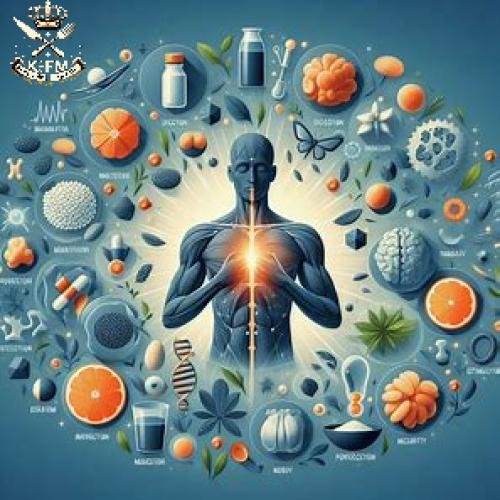Calcium is one of the essential minerals that plays a vital role in building bones and teeth, as well as maintaining the health of muscles and nerves. It also affects critical functions such as blood clotting, muscle contraction, and the transmission of nerve signals. A deficiency in calcium can lead to serious health problems, including weakened bones prone to fractures, and disturbances in heart and nerve functions. Symptoms of calcium deficiency appear gradually, such as muscle weakness and fatigue, but they may worsen if left untreated.
In this context, this article higlights the importance of calcium and the effects of its deficiency, noting that phosphorus plays a significant role as a partner in the proper absorption and utilization of calcium, ensuring the body’s vital functions are carried out effectively.

A deficiency in dietary or bodily calcium can lead to serious health consequences such as osteoporosis, tooth decay, muscle weakness, bleeding, pregnancy complications, and an increased risk of colon cancer. Therefore, maintaining a diet rich in calcium is essential to prevent these health issues.
Foods to Address Calcium Deficiency in the Body:
You can compensate for calcium deficiency by consuming a variety of calcium-rich foods, including:
Dairy Products:
- Milk, yogurt, and cheese are excellent sources of calcium.
- Low-fat yogurt can be eaten as a snack or milk can be added to smoothies.
Leafy Green Vegetables:
- Spinach, kale, and broccoli.
- They can be eaten cooked or added to salads for a good dose of calcium.
Nuts and Seeds:
- Almonds, sesame seeds, and chia seeds are rich in calcium.
- Add chia seeds or sesame seeds to yogurt or smoothies.
Fish:
- Sardines and canned salmon, especially if they include the bones.
- Best consumed grilled or as part of a main dish for maximum benefit.
Legumes:
- White beans, lentils, and soybeans.
- They can be incorporated into soups or salads.
Fortified Foods:
- Some cereals, orange juice, and calcium-fortified almond or soy milk.
Dried Fruits:
- Dried figs and raisins contain significant amounts of calcium.
How to Maximize the Benefits of These Foods:
Consume with Vitamin D:
Vitamin D enhances calcium absorption. You can get it from fatty fish like salmon or by exposing yourself to sunlight for 15-20 minutes daily.
Avoid Inhibitors:
Reduce your intake of foods that hinder calcium absorption, such as caffeine (tea and coffee) and soft drinks.
Limit the consumption of foods rich in oxalates (like rhubarb) or phosphates (like processed meats).
Take Calcium in Small Doses:
It is preferable to spread calcium intake throughout the day rather than consuming it all at once, as the body absorbs smaller amounts more efficiently.
Balance Calcium and Magnesium:
Magnesium helps improve calcium absorption. It can be obtained from nuts, seeds, and leafy vegetables.
Focus on Food Variety:
Make sure to diversify your calcium sources in your diet to avoid relying on a single source.
Following these tips will help maintain healthy calcium levels and ensure your body gets the maximum benefit.
Frequently Asked Questions:
- What are the causes of calcium deficiency in the body?
The cause may be poor nutrition, problems with calcium absorption, or hormonal imbalances. - Does calcium deficiency affect mental health?
Yes, calcium deficiency can lead to anxiety and stress, and may contribute to depression and difficulty sleeping. - Do the symptoms of calcium deficiency vary by age?
Yes, symptoms vary by age. Children may experience growth delays, the elderly may suffer from osteoporosis, and pregnant women may face issues with fetal growth. - Can calcium be harmful if consumed in excess?
Yes, consuming large amounts of calcium can lead to health problems such as kidney stones and constipation. - What is the role of calcium in preventing osteoporosis?
Calcium helps strengthen bones, which helps prevent osteoporosis, especially as one ages. - Can calcium help prevent colon cancer?
Yes, some studies suggest that calcium may help in the prevention of colon cancer. - How can medications affect calcium absorption?
Some medications, such as antacids, can affect the body’s ability to absorb calcium. - What is the recommended daily intake of calcium?
The recommended amount varies by age. Adults generally need about 1000-1200 mg of calcium per day. - Are there interactions between calcium and certain medications or supplements?
Yes, some medications, such as diuretics, can affect calcium levels in the body. Calcium can also interfere with the absorption of iron and magnesium. - What role does calcium play in the prevention of osteoporosis?
Calcium enhances bone strength and reduces the risk of osteoporosis, especially in individuals who have calcium deficiencies. - Is there a relationship between calcium and heart health?
Yes, calcium plays a role in heart health by helping regulate heartbeats and proper blood flow.
Wishing everyone health and wellness, we conclude our article by wishing you continued health, and peace be upon you.




















